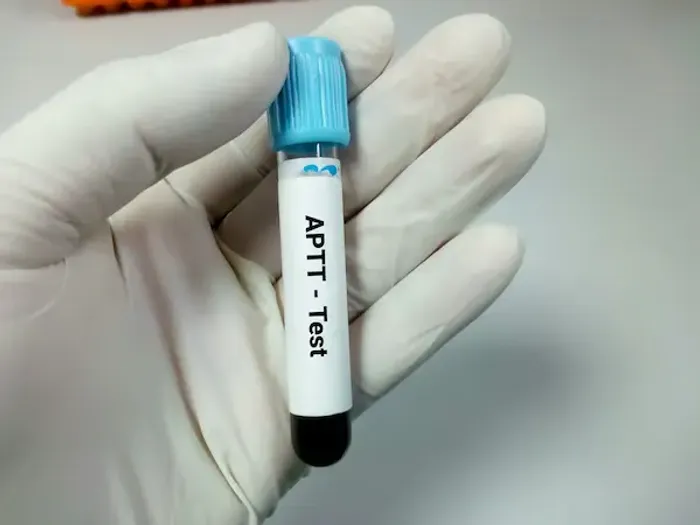APTT Test Overview and Information
Get a clear overview of the APTT test, including its purpose, procedure, and importance in assessing blood clotting function. Learn when it’s recommended and how results help guide treatment decisions.

Written by Dr. Rohinipriyanka Pondugula
Reviewed by Dr. Md Yusuf Shareef MBBS
Last updated on 14th Aug, 2025

Introduction
When it comes to blood tests, many of us feel a little overwhelmed by the medical terms and procedures. One such test you might have heard of is the APTT (Activated Partial Thromboplastin Time) test. If your doctor has recommended this test, don’t worry; it’s a common and important blood test that helps check how well your blood clots.
In this article, we’ll break down everything you need to know about the APTT test in simple terms: what it is, why it’s done, what the results mean, and how you can prepare for it.
What is the APTT Test?
The APTT test measures how long it takes for your blood to form a clot. It specifically looks at the function of certain proteins in your blood called clotting factors. These factors help stop bleeding when you get a cut or injury.
If your blood takes too long to clot, you may have a higher risk of excessive bleeding. On the other hand, if it clots too quickly, you might be at risk of dangerous blood clots. The APTT test helps doctors identify these issues.
Consult a Haematologist for the best advice
Why is the APTT Test Done?
Your doctor may recommend an APTT test for several reasons:
1. To Monitor Blood Thinners – If you’re taking blood-thinning medications like heparin, this test ensures the dose is correct.
2. To Diagnose Bleeding Disorders – Conditions like hemophilia or von Willebrand disease affect clotting.
3. Before Surgery – To check if your blood clots normally before a procedure.
4. Unexplained Bleeding or Bruising – If you bleed too easily, this test helps find the cause.
5. Liver Disease – The liver makes clotting factors, so liver problems can affect clotting time.
What Happens During the APTT Test?
The test is simple and quick:
1. A healthcare professional will clean a small area (usually your arm) with an antiseptic.
2. They will insert a needle into a vein to draw a small blood sample.
3. The blood is sent to a lab for analysis.
4. You may feel a slight pinch, but the process is usually painless and takes just a few minutes.
No special preparation is needed, but if you’re on blood thinners, inform your doctor beforehand.
Consult a Haematologist for the best advice
Understanding APTT Test Results
The normal APTT range is usually 25 to 35 seconds, but this can vary slightly between labs. Here’s what different results may mean:
Longer APTT Time (Slow Clotting) – Could indicate:
- A bleeding disorder (e.g., hemophilia).
- A deficiency in clotting factors.
- Liver disease.
- Too much blood thinner (heparin).
Shorter APTT Time (Fast Clotting) – Could mean:
- Increased risk of blood clots.
- Certain medications or conditions affecting clotting.
- Your doctor will explain your results and recommend further tests or treatments if needed.
How Can You Manage Abnormal APTT Levels?
If your APTT results are outside the normal range, your doctor will guide you on the next steps. Here are some general tips:
1. If You Have a Bleeding Disorder:
- Avoid activities that may cause injuries.
- Follow your doctor’s advice on medications.
- Eat a balanced diet rich in vitamin K (found in leafy greens) if recommended.
2. If You’re on Blood Thinners:
- Take medications as prescribed.
- Avoid excessive alcohol.
- Be cautious with activities that may cause bleeding.
3. Lifestyle Changes for Better Clotting Health:
- Stay hydrated.
- Exercise regularly (but avoid excessive strain if you have a bleeding disorder).
- Avoid smoking, as it can affect circulation.
When to See a Doctor?
If you experience any of these symptoms, consult your doctor:
- Frequent nosebleeds or heavy menstrual bleeding.
- Unexplained bruises.
- Prolonged bleeding from minor cuts.
- Swelling or pain in legs (possible blood clot).
- Your doctor may recommend an APTT test or other clotting tests to diagnose the issue.
Final Thoughts
The APTT test is a valuable tool in assessing blood clotting function. Whether you’re being monitored for a bleeding disorder, taking blood thinners, or preparing for surgery, this test helps ensure your safety.
Consult a Haematologist for the best advice